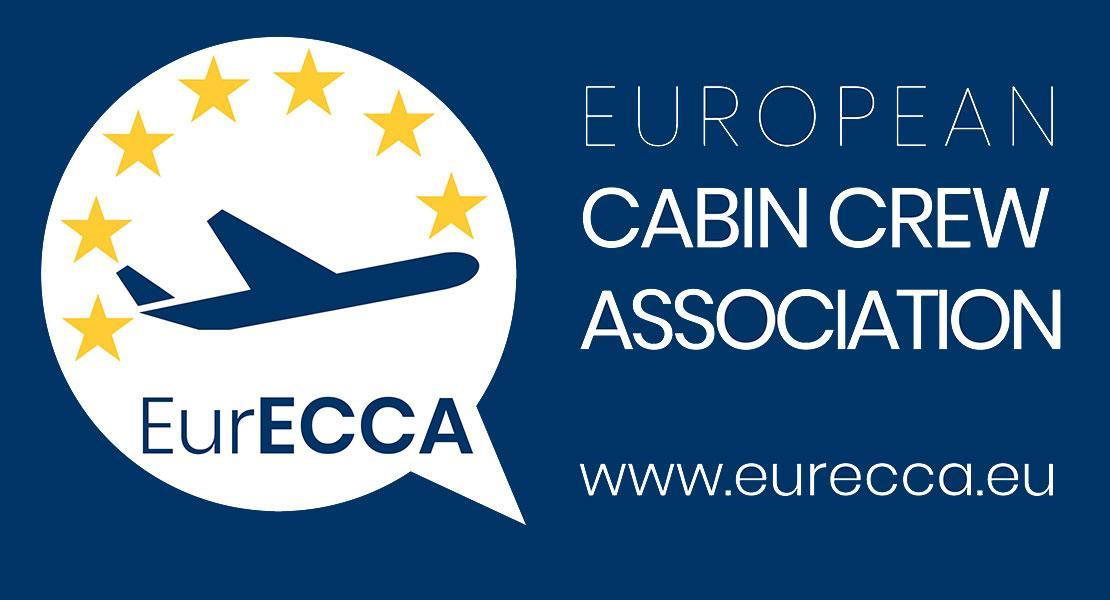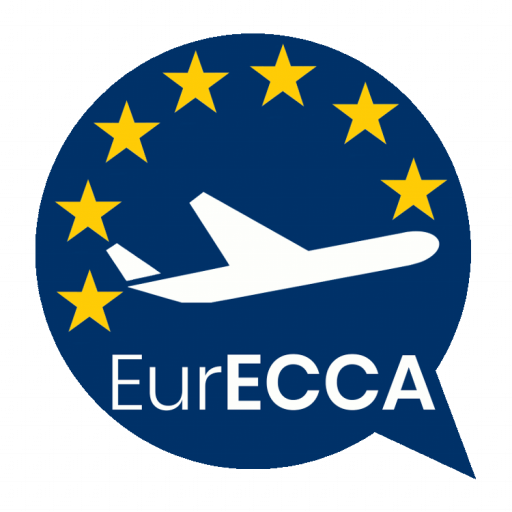EurECCA’s role in protecting and developing cabin crew’s rights
Since its foundation, EurECCA has represented, protected and developed the rights and needs of cabin crew all over Europe, publicly raising awareness on the main features and uniqueness of the inflight-workplaces and in general on the challenges of this specific civil aviation workers.
EurECCA acknowledges the Commission written answer given by Ms Vălean on behalf of the European Commission (28/02/2022) to the Parliamentary Question on the “Revision of Regulation (EC) No 1008/2008 and the EU legal framework for air navigation and cabin crew about the implementation of Regulation (EC) No 1008/2008. (20/12/2021)
Parliamentary Question[1]:
“Does it intend to promote the adoption of a “special” directive under Article 16 of the framework directive on health and safety at work (89/654/EEC) that is specific to inflight workplaces?”
Commission’s written answer[2]:
“The Workplace Directive 89/654/EEC4 does not apply to means of transport used outside the undertaking and/or the establishment, or workplaces inside means of transport. Currently, there is no intention to issue an individual Directive in the sense of Article 16 of the Framework Directive that is specific to inflight workplaces. In any case, the provisions of the Framework Directive fully apply to workers in all sectors, including the aviation sector.”
EurECCA appreciates that the Commission is aware of the challenges aircrews may face when applicable labour laws is not defined and or not correctly enforced and confirms its full support to any Commission effort aimed to effectively promote social responsibility in air services.
EurECCA strongly believes that specific definitions of “operational base” and “aircraft operator” are necessary and a must to avoid instrumental use of the legal framework for free movement of establishment and free movement of services and guarantee that each cabin crew can be employed according to the labour law of a single “operational base” and a single “aircraft operator”.
EurECCA deeply regrets the European Commission statement of “no intention to issue” an individual Directive specific to in‐flight workplaces as cabin crews are subject to specific working conditions that cannot be compared to those of any other profession.
Scientific research has shown over the years that the artificial environment on board is penalizing for its occupants and has a strong impact on the crew members’ health, both in terms of physical and mental health.
EurECCA highlights that the ongoing lack of individual Directive establishing the minimum requirements for in-flight occupational safety and health is one of the main reasons guiding Member States not to adopt effective rules for the protection of aircrew.
Currently the Occupational Health and Safety (OH&S) framework Directive 89/391/EEC covers all workplaces, but this is only a supporting legal structure around which others “specific Directives” at European level should be available, considering specific workplaces, especially when it comes to unique environments such as the inflight one.
The lack of a specific EU Directive also prevents appropriate authorities to oversee the Occupational Health and Safety (OH&S) incidents and accidents occurred in the unique environment of the airplane.
EurECCA strongly calls the European Commission to ask for investments on new technologies to make cabin crews’ work less potentially harmful shall be a priority.
As new challenges emerge and the complexity of the aviation systems continues to increase, it is of key importance to have the right competences and adapt training methods.
It is equally important for aviation personnel to take full advantage of new technologies to enhance safety: new type of personal protective equipment’s (PPE), such as new smoke hoods, improved galley configurations, cleaning and sanitizing automation facilities, are just few examples.
EurECCA believes that ergonomics science shall be a guideline to maximize productivity by reducing workers fatigue and discomfort, as quoted in clause 6 of the Council Directive 2000/79/EC[3] in reference to aircrew:
“Clause 6: Necessary measures will be taken to ensure that an employer, who intends to organize work according to a certain pattern, takes account of the general principle of adapting work to the worker.”
EurECCA witnesses a massive deterioration of cabin crew working conditions, such as:
- unlimited working time;
- narrowed working spaces;
- lack of rest breaks;
- no access to food and drink;
- increase of aircraft capacity and cabin crew commercial tasks;
- reduced crew operations;
- reduced training.
EurECCA highlights that the lack of EU minimum insurance requirements to cover cabin crew from unfitness to fly, due to work related reasons, shall be an urgent matter of concern.
EurECCA acknowledges that aviation is a sector under great pressure to be economically efficient, but cannot support this efficiency to be obtained by degrading cabin crew’s working conditions and, consequently, cabin crew’s health and well-being.
EurECCA encourages the European Commission to issue a Proposal for a specific Directive under Article 16 of the framework directive on health and safety at work -Directive 89/391/EEC[4] to give substance to clause 5 of the Council Directive 2000/79/EC which states that:
“Mobile staff in civil aviation will have safety and health protection appropriate to the nature of their work” and “Adequate protection and prevention services or facilities with regard to the safety and health of mobile staff in civil aviation will be available at all times.”
EurECCA represents, protects and develops the rights and needs of all cabin crew all over Europe
About EurECCA: established in Brussels in 2014, the European Cabin Crew Association, EurECCA, represents, protects and develops the rights and needs of cabin crew all over Europe. It is composed of cabin crew unions from European Union Member States as well as accession and bordering states and represents some 33,000 cabin crew accounting for 70% of all organized cabin crew in Europe. EurECCA has no political connections. EurECCA’s work is around Cabin Crew working conditions, wages, social protection and health and safety at work.
[1]https://www.europarl.europa.eu/doceo/document/E-9-2021-005627-ASW_EN.html
[2]https://www.europarl.europa.eu/doceo/document/E-9-2021-005627_EN.html
[3]https://eur-lex.europa.eu/eli/dir/2000/79/oj
[4]https://eur-lex.europa.eu/legal-content/EN/TXT/PDF/?uri=CELEX:31989L0391&from=EN
EurECCA European Cabin Crew Association AISBL
Rue du Commerce 20-22
1000 Brussels, Belgium

